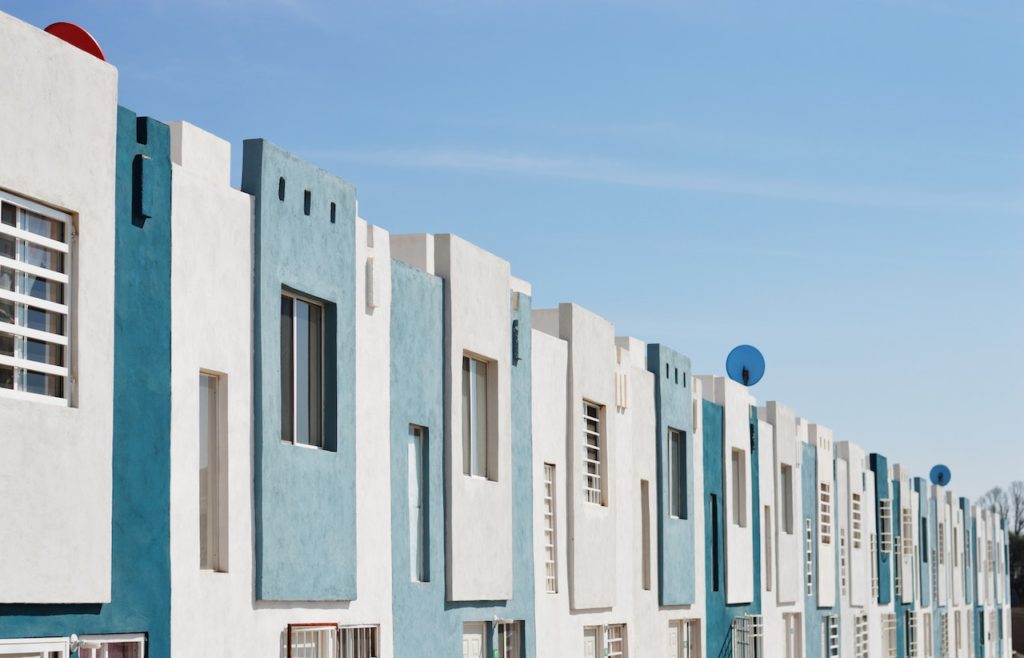Solar panels for home, allowing homeowners to reduce their dependence on the electrical grid (traditional), save on your energy bills and contribute to the protection of the environment. The photovoltaic solar energy has become one of the most popular alternatives and sustainable way to generate electricity in homes.
This comprehensive guide will provide all the information necessary to understand how to operate the solar panels, how many you need for your home, how much it costs to install them, and how to carry out the installation process of safe and efficient manner.
In this post, we delve into:
What is solar energy?
Solar energy it is a form of renewable energy that is obtained from the radiation of the sun. This radiation can be converted into electricity or heat by using different technologies, with solar pv panels the most common way to take advantage of this source of energy in households.
Los solar panels for home are composed of photovoltaic cells, which absorb the sunlight and transform it into electrical current. This electricity can be used to power appliances and devices of a house, thereby reducing the dependence of the electrical network traditional.
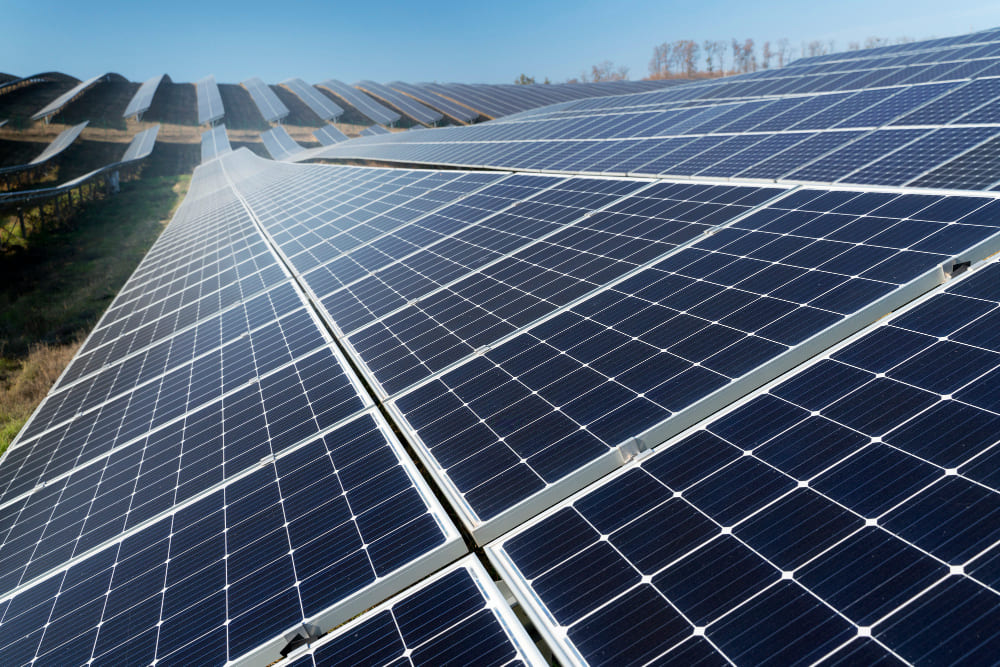
Benefits of solar energy
Solar energy offers numerous benefits to both the individual level and a global level:
- Environmental sustainability: Solar energy is a renewable source of energy, and clean, which means it does not generate emissions of greenhouse gases or polluting the environment.
- Economic savings: Install solar panels in your home allows you to significantly reduce your electricity bills in the long term, making it a profitable investment.
- Energy independence: When generating your own electricity, you become less dependent on the electrical grid traditional, which increases your security and control over the supply of energy.
- Increase the value of the property: The installation of solar panels can increase the value of your home, like the comprehensive reforms, making it an attractive investment.
- Incentives and subsidies: In many countries there are programs of incentives and financial support to encourage the adoption of solar energy, which facilitates the initial investment.
- Under maintenance: Once installed, the solar panels require little maintenance and have a lifespan of 25 to 30 years.
Disadvantages of solar energy
While the benefits of solar energy are numerous, there are also some disadvantages that should be taken into account:
- High initial costThe installation of a system of solar panels typically have an initial cost high, but it compensates for long-term savings in the electric bill.
- Dependence of the solar light: Solar panels can only generate electricity when they receive enough sunlight, which means that their performance may be affected by the weather conditions.
- Space required: To install a system of solar panels that cover the energy needs of a home, it requires a considerable surface on the roof or on the ground.
- Energy storage: If you want to be self-sufficient and have energy even during the night or on cloudy days, they need a system of energy storage, such as batteries, which increases the complexity and cost of the system.
- Visual impact: Some homeowners may consider that the solar panels will negatively affect the aesthetics of your home, especially in areas with strict regulations on the appearance of the dwellings.
How do solar panels?
The photovoltaic solar panels convert the solar energy into electricity through a process called the photovoltaic effect. This process is based on the ability of certain semiconductor materials such as silicon, to generate an electric current when exposed to sunlight.
When the photons of the sunlight impinging on the solar cells that make up a panel, these photons excite the electrons of the atoms in the semiconductor material, which generates an electric field. This electric field produces a direct current (DC) which are then converted into alternating current (AC) using an inverter, which can be used to power appliances and devices in your home.
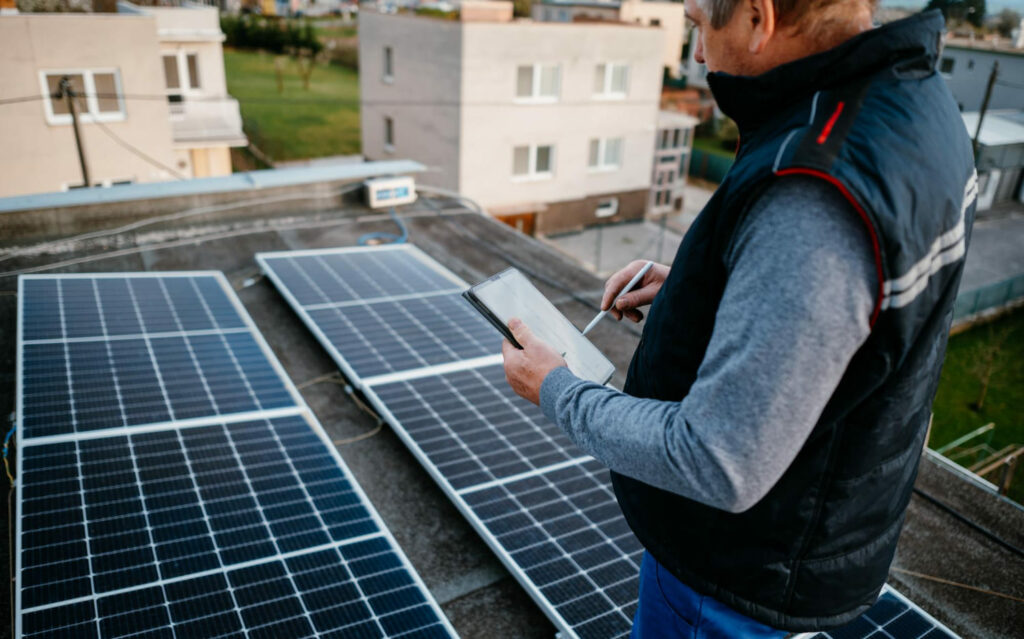
Parts of a solar panel
A solar panel is made up of multiple parts that work together to generate electricity:
- Aluminum frame: This structure is durable and long lasting protects the solar panel from the outside elements, such as wind, rain and snow.
- Cover tempered glass: This transparent layer allows the sunlight to penetrate the panel and reach to the solar cells. The tempered glass is highly resistant to impact and adverse weather conditions.
- Layer encapsulant EVA: This layer of ethylene-vinyl acetate (EVA) is placed between the solar cells and the glass cover. Its function is to protect the cell from moisture and physical damage.
- Solar cells: These are the fundamental parts of the solar panel, as they are responsible for converting the solar energy into electricity. Usually, they are made of silicon, a semiconductor material that releases electrons when exposed to light.
- Back cover: This layer is placed in the back of the solar panel and protects the internal components, such as electrical connections.
- Connection box: This is the point where the electrical cables of the solar panel to bring the generated power to the house or to the storage system.
Types of solar panels
There are different types of solar panels, each with its own characteristics and advantages:
- Monocrystalline solar panels: Are fabricated from a single silicon crystal, and are the most efficient, with an efficiency typical 15% to 22%. They are more expensive but also more durable.
- Multicrystalline solar panels: Are made up of multiple crystals of silicon cast. They have an efficiency slightly lower than monocrystalline, but they are more economic.
- Solar panels thin film: Use a thin layer of semiconductor material, such as amorphous silicon, the cadmium telluride, or copper-indium-gallium-selenium (CIGS). They have an efficiency lower, but they are more lightweight and flexible.
- Solar panels hybrid: Combined photovoltaic solar cells with a system of uptake of heat, which allows them to generate both electricity and heat.
Each type of solar panel has its own characteristics and advantages, so it is important to evaluate your needs, and your budget to choose the most suitable for your home.
How many solar panels you need for your home?
The amount of solar panels for home you need to abastecerla of energy depends on several key factors:
- Energy consumption of your home: The first step is to determine how much electrical energy you consume in your house. This will depend on the number of inhabitants, the appliances and devices you use, and your consumption habits.
- Size of your home and roof: The available area on the roof of your home is a crucial factor, since it determines how many solar panels you can install. Usually, it takes a minimum of 10-15 m2 of free-surface and oriented toward the south to install a solar photovoltaic system.
- Power of the solar panels: The power of the solar panels, measured in watt peak (Wp), also influences the amount needed. Panels more efficient, require less units to cover the same energy demand.
- Geographic location and orientation of the roof: The amount of sunlight it receives your house varies according to the latitude, the orientation of the roof and the presence of shadows. These factors affect the energy production of the panels.
- Autonomy and energy storage: If you want to be self-sufficient and have energy even during the night or on cloudy days, you will need a storage system, such as a battery, which will increase the quantity of panels required.
As an example, a house of 150 m2 with a power consumption moderate may need between 15 and 20 solar panels of 300 watts each to be self-sufficient. However, it is important to perform a detailed analysis of your specific situation to determine the exact amount of solar panels you need.

Considerations before installing solar panels
Evaluation of your energy consumption
Before you install solar panels, it is crucial to know how much electrical energy you consume in your home. This will depend on several factors, such as the number of inhabitants, the appliances and devices you use, and your consumption habits.
To determine your energy consumption, you can check your electricity bills or use a calculator of energy consumption. This will allow you to estimate the amount of energy that you need to generate with your solar panels to cover your needs.
The choice of the system of solar panels suitable
Once you know your energy consumption, you can adjust the solar panel system is most appropriate for your home.
Some of the factors to consider are:
- Panel power: The power of the solar panels, measured in watt peak (Wp), will determine the amount of energy that can be generated.
- System size: The amount of solar panels needed will depend on your energy consumption and available space on your roof or ground.
- Technology of the panels: You will need to choose between the panels, monocrystalline, polycrystalline or thin-layer, each one with its own characteristics and efficiencies.
- Storage system: If you want to be self-sufficient and have energy even during the night or on cloudy days, you'll need a system of batteries to store the energy generated.
- Investors: Investors are the devices responsible for converting the direct current (DC) generated by the panels into alternating current (AC) usable in your home.
Financing of the installation of solar panels
The installation of a system of solar panels typically require a sizable upfront investment. However, there are several financing options that can help you to cover these costs:
- Loans and credits: Some banks and financial institutions offer loans and credits specific to the installation of solar panels, with favorable conditions.
- Subsidies and grants: In many countries and regions, there are programs of incentives and government subsidies to encourage the adoption of renewable energy, which can significantly reduce the cost of the investment.
- Leasing and rental: Some companies offer the ability to rent or lease the solar panels, thus avoiding the initial investment.
- Self-financing: If you have an account with the necessary resources, you can choose to fund the installation of solar panels with your savings or by using a mortgage.
It is important to analyze all the available options and choose the one that best suits your financial situation and your long-term goals.
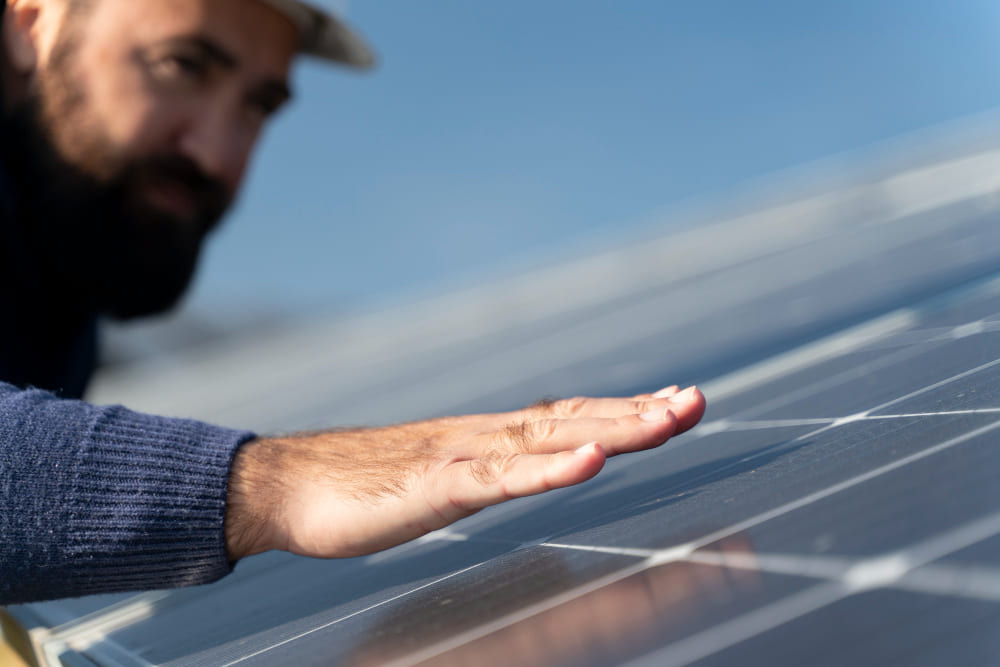
Permits and legal procedures
Before you install solar panels on your home, you must meet certain requirements and legal procedures, which may vary depending on your geographic location:
- Building permits: In most cases, it will be necessary to obtain a building permit, or of works to be able to install solar panels on your roof or ground.
- Connection to the electrical network: If you want to inject the excess power generated to the grid, you'll need to make the appropriate arrangements with the distribution company.
- Local regulations: Some areas may have restrictions or regulations specific to the installation of solar panels, so it is important to inform you about the requirements of your town or community.
- Civil liability insurance: It may be necessary to hire a civil liability insurance to cover possible damage or accidents related to the installation of the solar panels.
It is advisable to consult with a professional installer, or with the local authorities to ensure that you meet all of the legal requirements and avoid future problems.
The choice of the installer of solar panels
The choice of the installer of solar panels is a crucial step to ensure a safe installation, efficient, and durable. Some aspects to consider when selecting an installer are:
- Experience and certifications: Looking for an installer with proven experience in the installation of solar pv systems, and it has the accreditations and certifications necessary.
- Reputation and references: Ask for recommendations from other satisfied customers and check out the reviews and ratings of the online installer.
- Warranties and after-sales service: Make sure that the installer provides a guarantee on parts and labor, and which is provided with a maintenance service and customer care.
- Budget and payment terms: Compare quotes from several installers and negotiates the terms of payment that are best suited to your financial situation.
- Technical advice: A good installer should provide technical advice on the best solution for your home, taking into account your needs and the space available.
Installing solar panels is a long-term investment, so it is essential to choose a trusted installer that you ensure a high quality installation and after-sales service adequate.
Cost of installing solar panels in your home
The cost of installing solar panels in your home can vary significantly, depending on several factors:
- System size: A few more panels and storage batteries you need, the greater will be the total cost of the system.
- Quality of components: Solar panels, inverters and batteries of the highest quality and efficiency tend to have a higher price.
- Labor and installation: The installation costs can vary depending on the complexity of the project, the experience of the installer and geographical location.
- Incentives and subsidies: In some countries and regions, there are incentive programs and grants that can significantly reduce the final cost of the installation.
In the Spanish market, the average price to install a solar panel system for a home can range between 15,000 and 30,000 euros. However, it is important to get several quotes from local installers and compare options to find the best price-quality ratio.
In addition, it is essential to take into account the costs of maintenance and repairs over the life of the system, which can be 25 to 30 years. Some of these costs include:
- Periodic cleaning of the panels
- Review and adjustment of the electrical components
- Replacement battery from storage every 5-10 years
It is important to consider all these factors to estimate the total cost of ownership (TCO) of your solar panel system and make sure that the investment is profitable in the long term.
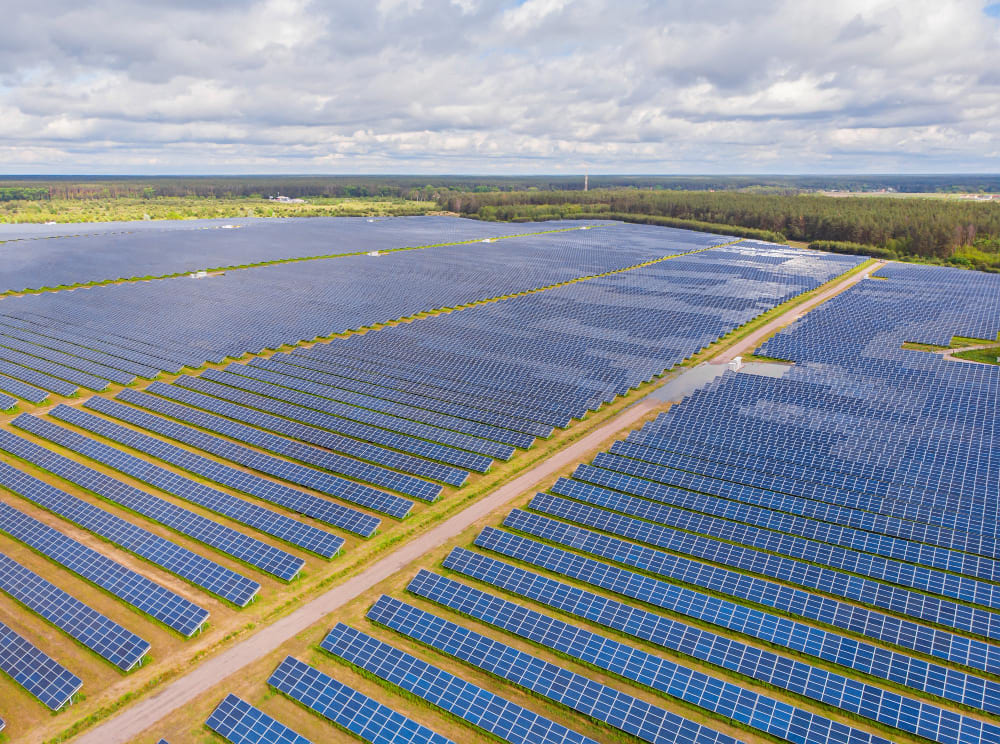
Installation and maintenance of solar panels
Process of installation of solar panels
The installation of a solar panel system in your home involves several key steps:
- Evaluation and system design:
- Analysis of the energy consumption of your home
- Selection of solar panels and components suitable
- Design of the system in accordance with the characteristics of your home
- Preparation of the roof:
- Evaluation of the structure and orientation of the roof
- Elimination of shadows and obstructions
- Reinforcement or repair of the roof if it is necessary to
- Installation of solar panels:
- Mounting brackets and structures of fixation
- Placement of solar panels on the roof
- Electrical connection of the panels
- Installation of the storage system:
- Placement of the storage batteries
- Connection of the battery to the electrical system
- Installation of the inverter and electrical components:
- Placement of the inverter to convert the direct current into alternating current
- Connection of the cables and electrical components
- Testing and commissioning:
- Check the correct functioning of the system
- Adjustment and optimization of the configuration
- Registration and connection to the electrical mains if it is necessary to
It is advisable to hire a professional installer and experience to make sure that the process is carried out safely and efficiently, while complying with all regulations and local requirements.
Maintenance of solar panels
Once installed, the solar panels require minimal maintenance to keep their efficiency and durability throughout its useful life. Some of the maintenance tasks are most important are:
- Periodic cleaning: Solar panels should be cleaned regularly to remove dirt, dust and debris that may accumulate on the surface, which may reduce its performance.
- Visual inspection: Periodically check panels for damage, cracks, or discoloration that may indicate problems.
- Review of electrical connections- Verify that all electrical connections between the panels, the inverter and the storage system are in good condition and properly adjusted.
- Performance monitoring: Check regularly the energy production of your solar system to detect potential problems or decreases in performance.
- Replacement of components: Some components, such as storage batteries, may require replacement from time to time, according to the manufacturer's recommendations.
It is recommended follow the manufacturer's instructions and should hire a skilled technician to make the maintenance of your solar panel system, thus ensuring its correct functioning over time.
Advantages of solar panels for home
Install solar panels in your home offers a number of advantages:
- Savings in the electric bill: When generating your own electricity, you can significantly reduce your energy costs.
- Energy independence: To be less dependent on the electrical grid traditional gives you greater control and security of energy supply.
- Contribution to the environment: Solar panels are a source of renewable energy and clean, which reduces your carbon footprint.
- Increase the value of the property: The installation of solar panels can increase the value of your home.
- Incentives and subsidies: In many countries there are programs of incentives and financial support to encourage the adoption of renewable energy.
- Under maintenance: Once installed, the solar panels require little maintenance and have a lifespan of 25 to 30 years.
- Quiet and reliable: Solar panels do not generate noise or emissions during operation.
These benefits make the investment in solar panels is becoming increasingly attractive and cost-effective for homeowners.

Economic benefits of solar panels for a home
Savings on the electricity bill
One of the main economic benefits of installing solar panels on your home is the savings in the electricity bill. When you generate your own electricity, you are heavily relying on the power grid, traditional, resulting in a significant reduction of your energy costs.
The savings that you get will depend on several factors, including the size of your solar system, your energy consumption, the price of electricity in your region and incentives or grants available. However, it is common for homeowners with solar panels to achieve savings of between 50% and 90% on your electricity bills.
Tax advantages and subsidies
Many countries and regions offer incentives and subsidies to encourage the adoption of solar energy in homes. These benefits can significantly reduce the initial cost of the installation of solar panels, making the investment more accessible and cost-effective in the long term.
Some of the main incentives and grants available for solar energy in the home include:
- Tax deductions: Some governments allow you to deduct all or part of the cost of the installation of solar panels on income taxes.
- Tax credits: Other countries offer tax credits that may be deducted directly from the tax bill.
- Grants: Some authorities give direct financial support to cover part of the cost of the installation.
- Rates of injection to the network: In some cases, it is possible to sell excess power to the grid at a preferential price.
It is important to learn more about the incentives available in your region and use them to maximize the economic benefits of your solar panel system.
Increase the value of your property
The installation of solar panels in your home can significantly increase the value of your property, which can help you to negotiate the sales price of your home. This is because the potential buyers will increasingly appreciate the energy efficiency and the sustainability of the housing.
According to various studies, the homes with solar panels can have a market value between 3% and 4% higher than similar homes without solar power systems. This results in an increase in the value of your home that can compensate to a large extent the initial investment in solar panels.
Energy independence
Another of the main economic advantages of installing solar panels in your home is the energy independence that gives you. When you generate your own electricity, you become less dependent on the electricity network of traditional and fluctuations in energy prices.
This independence gives you greater safety and control on your power supply, which can be especially valuable in times of instability in the market or power outages. In addition, it protects you from future increases in electricity rates, ensuring a long-term savings.
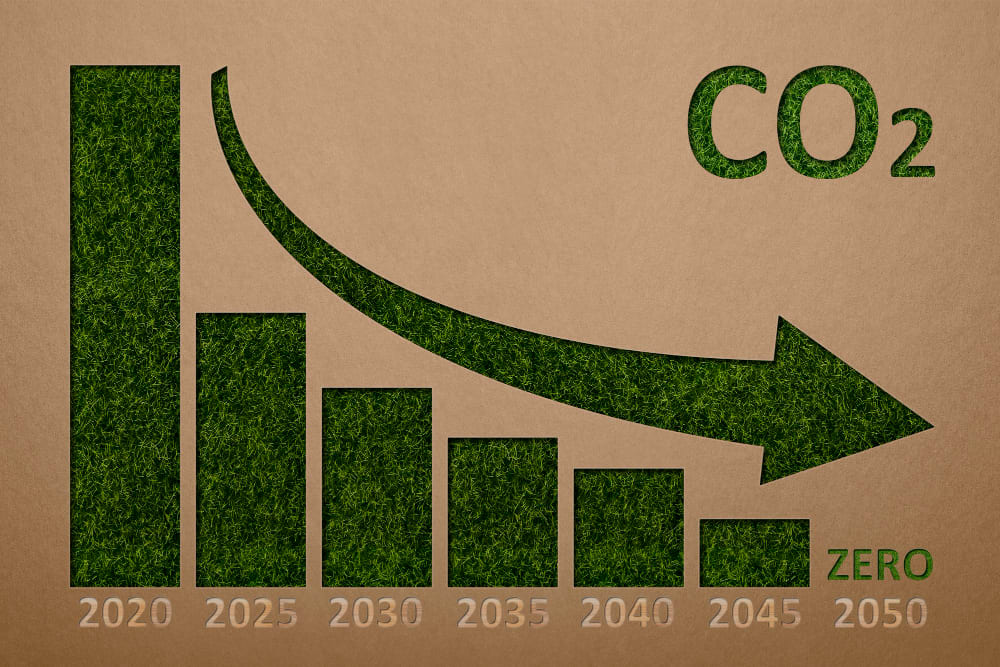
Environmental impact of solar panels
Reduction of CO2 emissions
One of the main environmental benefits of the solar energy is the reduction of the emissions of carbon dioxide (CO2) and other greenhouse gases. When you generate electricity from a renewable source such as the sun, instead of using fossil fuels is to prevent the release of these pollutants into the atmosphere.
According to data from the International Energy Agency, the photovoltaic solar energy can reduce CO2 emissions by approximately 0.5 tonnes for every megawatt-hour (MWh) of electricity generated. This means that, as more homes adopt solar energy, it contributes significantly to the fight against climate change.
Renewable energy and sustainable
Solar energy is a renewable source of energy, which means that it is an inexhaustible resource, and can be used in a sustainable manner, without depleting or damaging the environment.
Unlike fossil fuels, such as coal, oil, or natural gas, which is extracted from the earth and are depleted with time, the solar energy comes from the sun, a resource that is constantly renewed. This makes it an energy option is much more sustainable in the long term.
Decreased dependence on fossil fuels
The widespread adoption of solar energy in households contributes to reduce the dependence on fossil fuels for the generation of electricity. This has important environmental implications, since fossil fuels are one of the main sources of emissions of greenhouse gases and other pollutants.
When you generate electricity from the sun, reducing the need for burning fuels such as coal, oil, or natural gas, resulting in a smaller carbon footprint and a greater protection of the environment.
Solution of common problems with solar panels
Although the solar panels are generally reliable and require little maintenance, you might encounter some occasional problems. Some of the most common problems and their possible solutions are:
- Low energy production:
- Causes: Dirt on the solar panels, shadows, problems in the inverter or in the electrical connections.
- Solution: Clean the panels, remove shadows, checking the inverter and the connections.
- Damaged:
- Causes: Shock, hail, wind, aging.
- Solution: Replace damaged panels.
- Failure of the inverter:
- Causes: Overheating, electrical problems, aging.
- Solution: Replace the inverter or to repair it if possible.
- Problems on the storage system:
- Causes: Battery
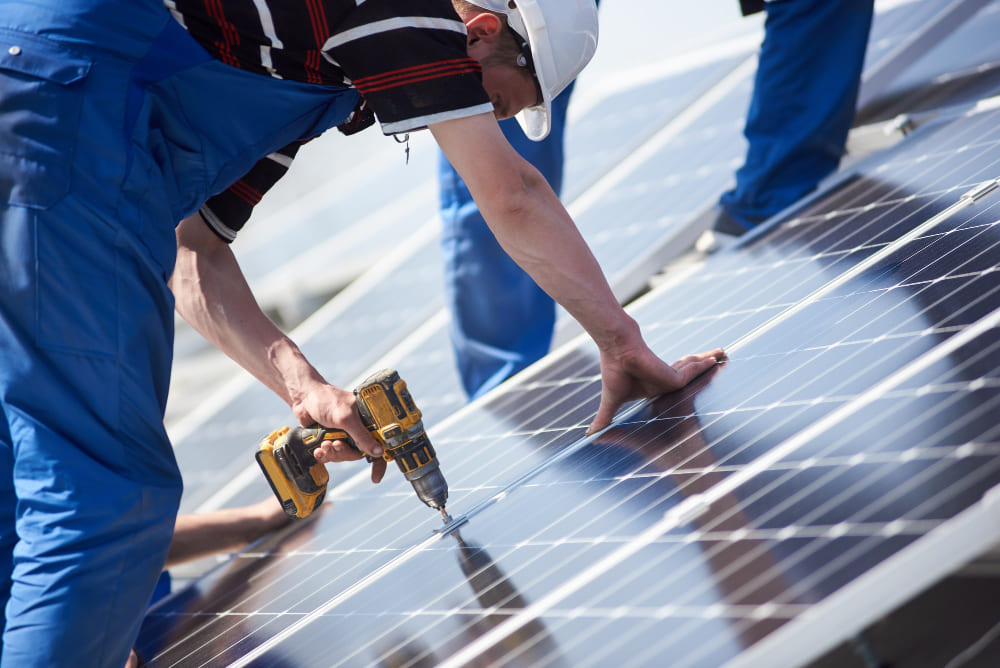
Frequently asked questions about solar panels
How much are solar panels?
The cost of installing solar panels in your home can vary significantly, depending on a number of factors, including the size of the system, the quality of the components and the geographic location.In the Spanish market, the average price of a solar panel system for a home can range between 15,000 and 30,000 euros. However, it is important to note that this initial investment will be offset over time with the savings on the power bill, and the incentives or grants available.
How long do solar panels?
With proper maintenance, your solar panels may have a useful life of between 25 and 30 years. Some manufacturers even offer performance guarantees for 25 years or more.It is important to note that, while the solar panels can last for decades, some of its components, like battery storage, may require replacements newspapers every 5-10 years, according to the manufacturer's recommendations.
What are the solar panels suitable for my home?
The suitability of solar panels for your home will depend on several factors, such as the size of your home, your energy consumption, the orientation and the available space on the roof, and your budget.In general, solar panels are a viable option for the majority of single-family homes and residential buildings. However, it is recommended to perform a detailed analysis of your specific needs and characteristics to determine whether the installation of a solar system is the best solution for you.
How can I find an installer of solar panels trust?
To find an installer of solar panels trust is crucial to ensure a safe installation, efficient, and durable. Some aspects to consider when selecting an installer are:
- Experience and certifications: Looking for an installer with proven experience, and accreditation necessary.
- Reputation and references: ask for recommendations from other clients and check online reviews.
- Warranties and after-sales service: be Sure that the installer offers guarantees and a good maintenance service.
- Budget and payment terms: Compare budgets and negotiate the best conditions.
- Technical advice: A good installer should give you advice on the best solution for your home.
You can search for certified installers through industry associations solar or ask for recommendations to your neighbors or friends who have installed solar panels.
What should I do if I have a problem with my solar panels?
If you experience any problem with your solar panels, the most advisable thing is to follow these steps:
- Check the user manual or contact the manufacturer to identify the cause of the problem.
- Contact the installer who performed the installation of your solar system. They should be able to diagnose and troubleshoot the problem, since they have the experience and the technical knowledge necessary.
- If the problem persists, or the installer can't resolve it, consider hiring a technician specialized in solar pv systems.
- Be sure to keep a detailed log of any problems that arise and the actions taken to fix it. This can be useful in case of claims or claims of warranty.
It is important to act quickly to any problem to minimize the impact on the performance and efficiency of your solar panel system.
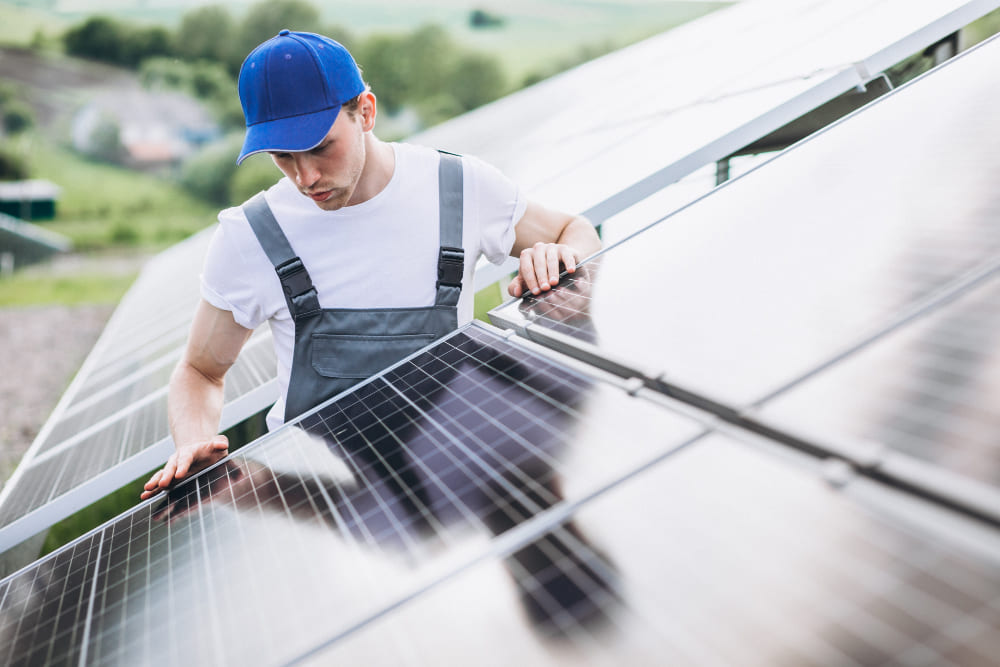
Additional resources on solar panels
Web sites of governmental and non-profit
- Professional guide for self-consumption of the agency IDEA
- Information on incentives and subsidies for solar panels in Spain
- Energy savings calculator solar
Publications and articles on solar energy
- Magazine, Renewable Energy
- Articles of Association of Energy Companies Renovabless (APPA)
- The journalism of renewable energies
Forums and online communities on solar panels
Conclusion on solar panels
The photovoltaic solar energy has become an increasingly attractive and accessible for homeowners looking to reduce their carbon footprint, save on your electricity bills and increase the energy independence of their homes.
This comprehensive guide has provided all the information necessary to understand the operation of solar panels, assess your energy consumption, select the appropriate system, to perform a safe installation and efficient, and take advantage of the economic and environmental benefits of solar energy.
Remember that, although the initial investment may be significant, the solar panels is converted into a cost-effective option in the long term, thanks to the savings in the electricity bill, the incentives and grants available, and the increased value of your property.
In addition, by opting for solar energy, you are contributing to the transition towards a more sustainable future, by reducing emissions of greenhouse gases and decreasing the dependence on fossil fuels.
If you have any questions or need more information, do not hesitate to consult additional resources provided or in contact with experts as Living Kits.
Let you enjoy the benefits of solar power in your home!


